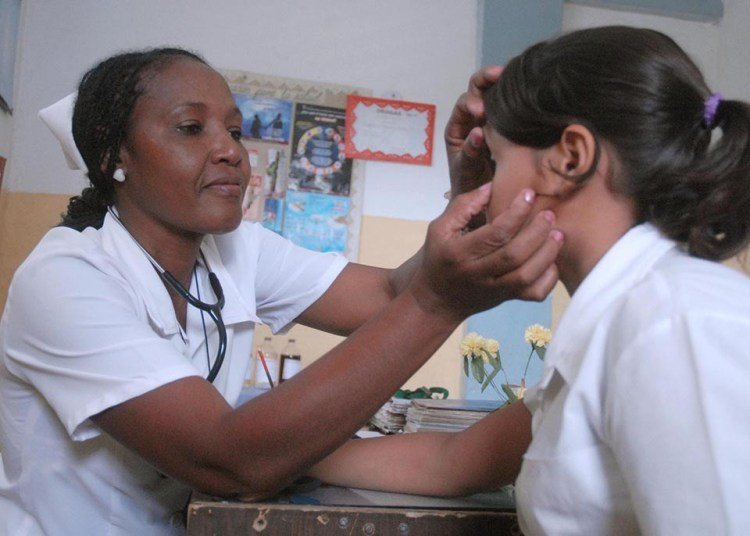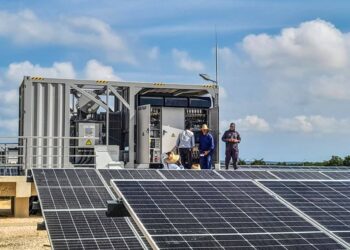Grenada will hire about 40 Cuban nurses in early 2020 to cover the island’s lack of professionals who emigrate en masse to developed countries, mainly to the United Kingdom.
Grenadian Minister of Health Nikolas Steele said this Wednesday in statements to local media that the local executive is finalizing arrangements for the hiring of nurses after discussions with the authorities in Havana. Steele said it is a “stop-gap measure” that tries to alleviate a problem caused in recent years by the exodus of nurses with experience in the country in search of better working conditions.
“Unfortunately, we are losing our nurses to first world countries,” said the official, who gave no information on the number of these professionals who have left the national system in recent years.
In addition to Cuba, Steele said the authorities in Grenada are also looking to bring nurses from countries such as Ghana and India.
The final agreement with the Cuban authorities will include housing for hired nursing professionals.
Cuba denuncia plan millonario de EEUU para “sabotear” su cooperación médica
Although the government of Grenada is trying to hire qualified nurses, Steele said that dozens of people in the Caribbean island want to become nursing assistants through a one-year training course through the National Training Agency.
“We are still on schedule for a January start of our nursing assistants program. We are in final negotiations with La Boucan and the national training authority of Grenada as well as our Ministry of Youth and Education to finalize the training of 50 nursing assistants,” said the minister.
The curriculum is expected to meet the criteria of the Nursing Council, the National Training Agency and the Ministry of Health.
La Boucan Creative Center is operated by former Health Minister Ann Peters, an institution recognized by the National Accreditation Board.
Recently, a new Cuban medical brigade composed of 40 health professionals arrived in Jamaica, where they will provide their services for three years.
Weeks ago, the members of the medical missions in Ecuador and Bolivia returned to Cuba, with which the island lost two of its traditional spaces for this work. In the case of Ecuador, the closure was decided by the government of Lenín Moreno, while in Bolivia it was Havana that chose to bring the health professionals back home due to the turbulent political situation in that country after the resignation of Evo Morales and the arrest of several Cuban collaborators.
A year earlier, in November 2018, Cuba withdrew more than 8,000 doctors from the “More Doctors” program in Brazil due to the threats of then president-elect Jair Bolsonaro to cancel that initiative if the Cuban government did not accept new conditions, including that doctors earn their full salary.
In 2018, medical missions abroad contributed almost 6.4 billion dollars to Cuba, well above the more than 1.3 billion earned from “support services,” the country’s second declared source of income, which includes assistance to vessels and airplanes, among other services.
EFE / OnCuba











Why shouldn’t the doctors get a full salary? I understand that their education was paid for and provided by the Cuban government, but most of them send money back to their families in Cuba, which in turn helps the Cuban people.